Submitted by WA Contents
Overtreders W designed a zero-waste and timeless pop-up restaurant for 2018 Lowlands Festival
Netherlands Architecture News - Sep 06, 2018 - 03:16 30405 views
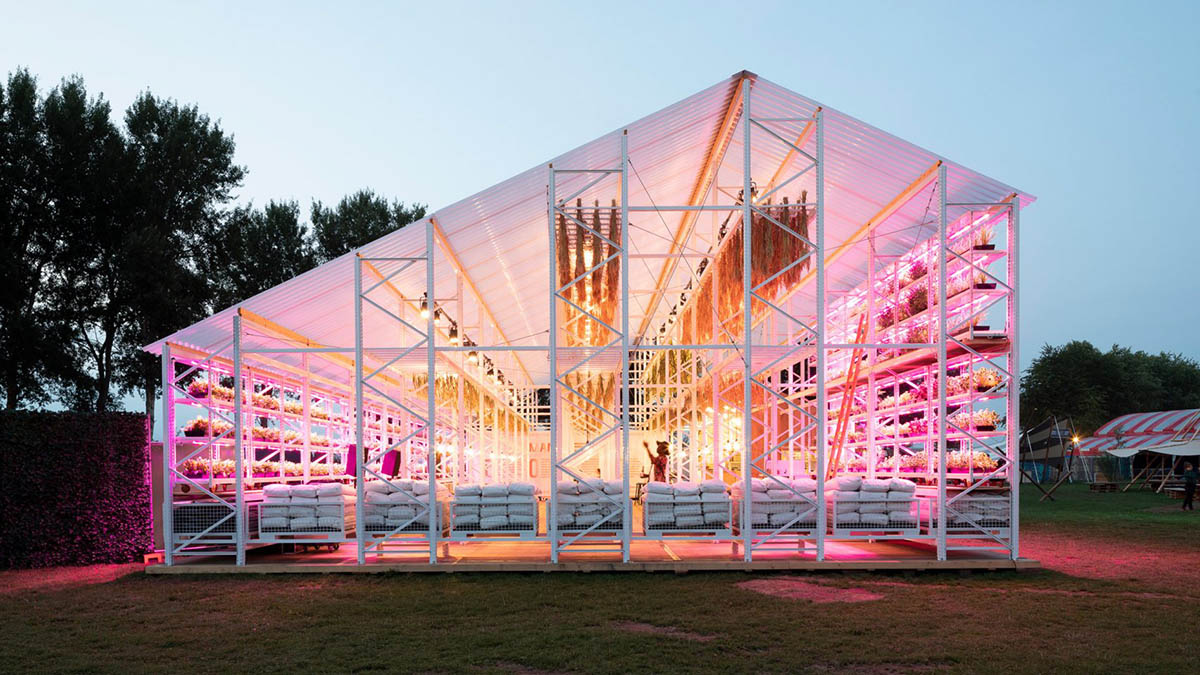
Spatial design agency Overtreders W has built a zero-waste and timeless pop-up restaurant for the 2018 Lowlands Festival in the Netherlands, promoting the food culture and spaces in a more sustainable way.
Called Brasserie 2050, the pop-up pavilion was created for a catering company The Food Line Up for the festival, which took place 17-19 August 2018 in the Netherlands.

The pavilion is not a usual pavilion or restaurant built so far. The designers used all components and materials from borrowed, hired and dismountable standard building materials that will keep their value after the barn is no longer in use.
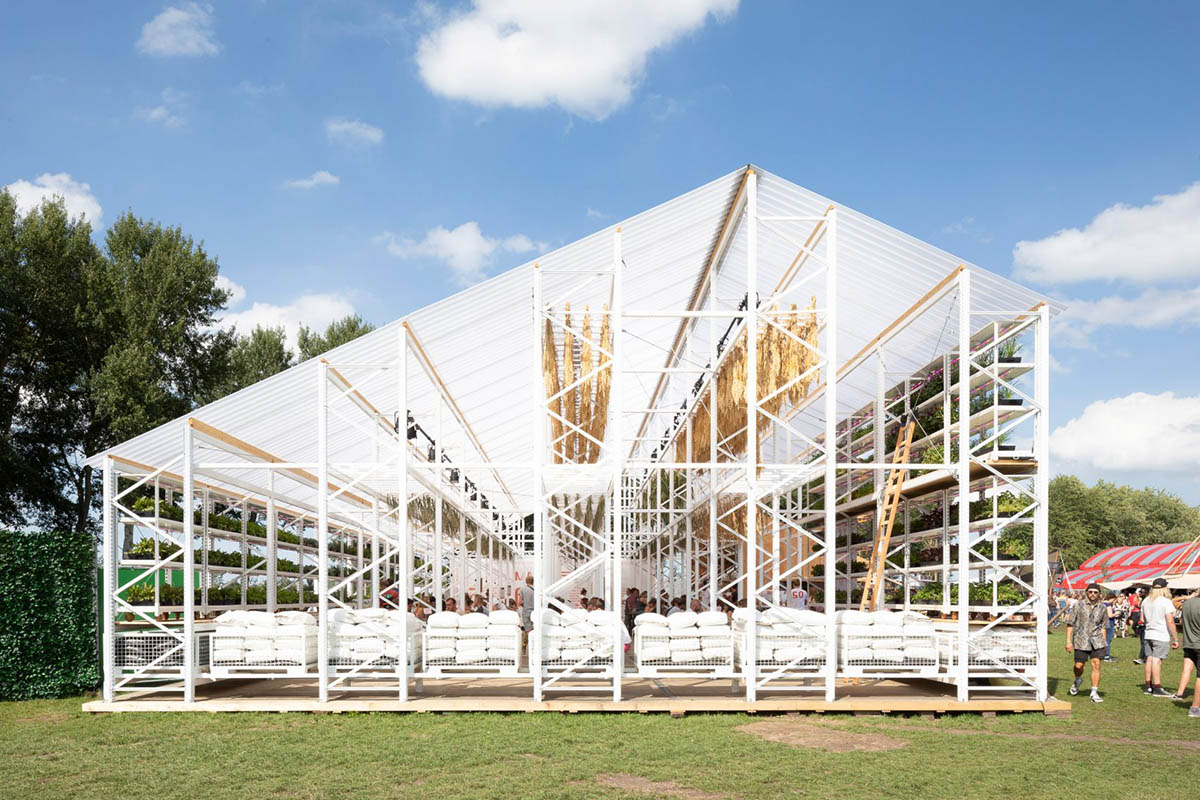
Regarding its title, the designers draw attention to recent eating statistics, by saying "In 2050 the world needs to feed an estimated 10 billion people."
"To make this possible, the world's population need to start eating in a more sustainable way," they added. "The dishes served at Brasserie 2050 prove this doesn't mean food will be boring or tasteless in the future, on the contrary."
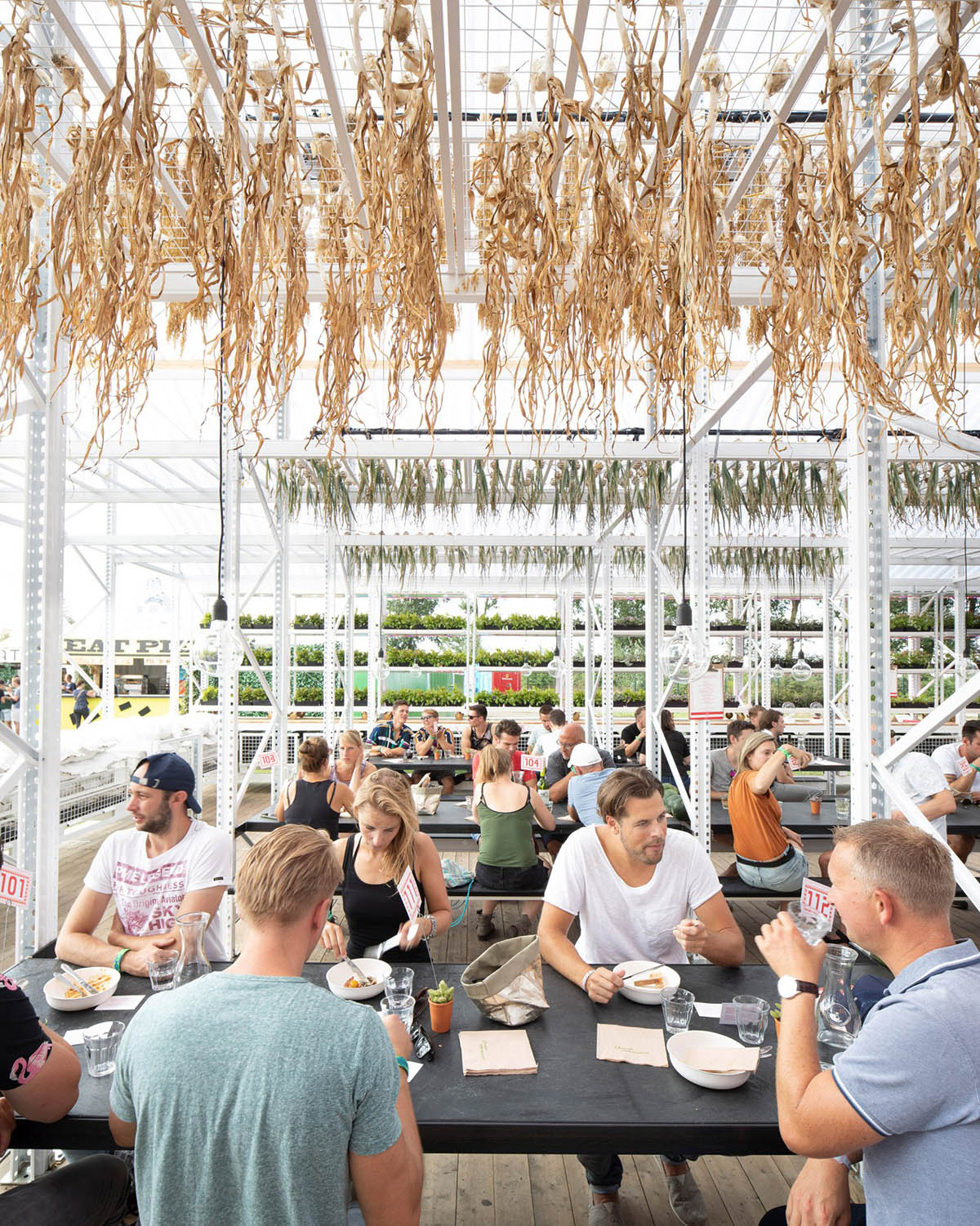
Brasserie 2050's menu includes bread made of potato peels, salad Biddinghuizen as a locally bread variety on salad Niçoise and steak tartare with 50% less meat, are listed among other dishes, with no waste.
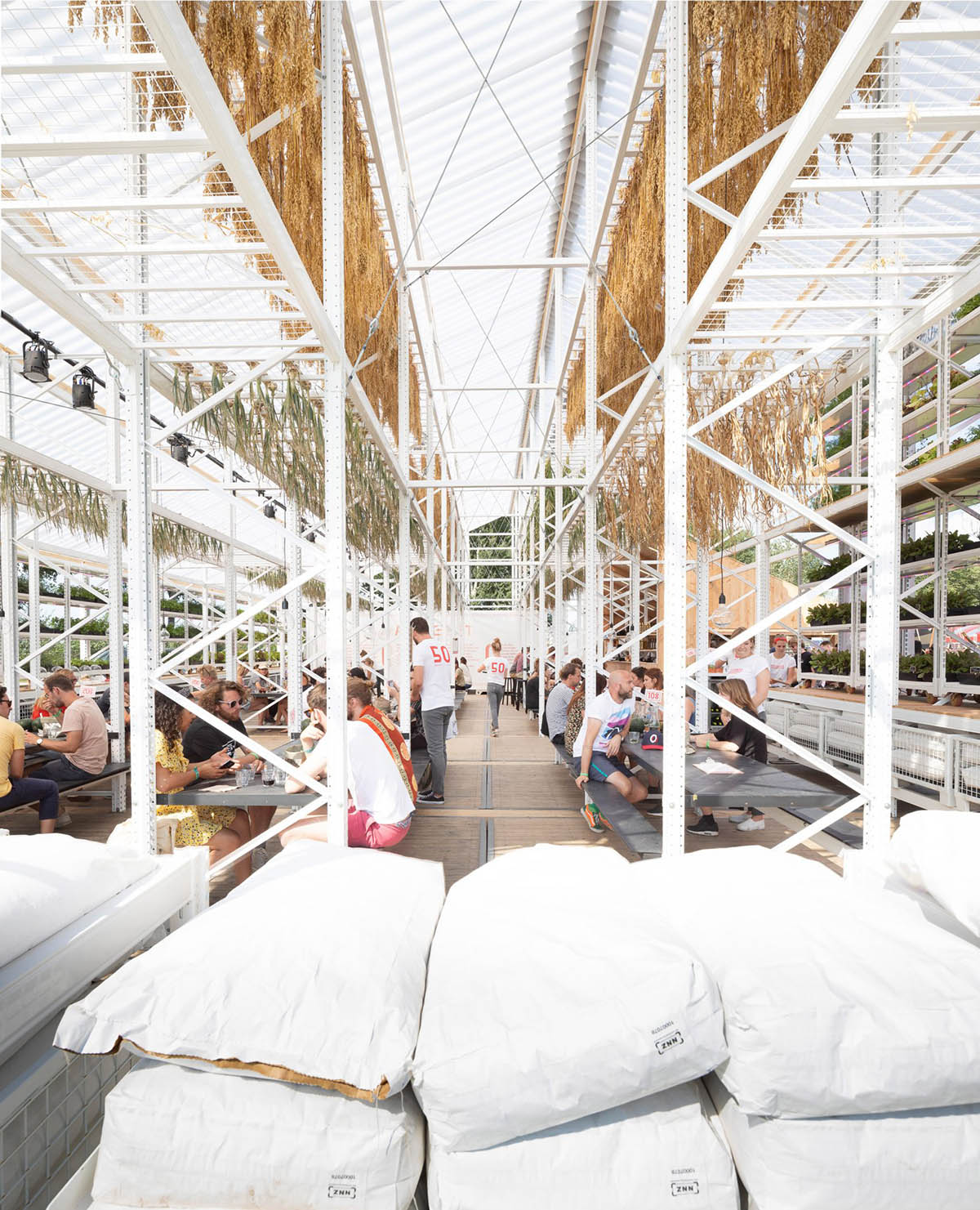
Developed as the barn of the future, the pavilion is considered as a timeless icon for farming, and has proven itself over the centuries as a neutral but recognizable envelope in which evolving farming activities can take place.
"In the future the barn will keep on adapting itself to new ways of breeding and harvesting," the designers added.
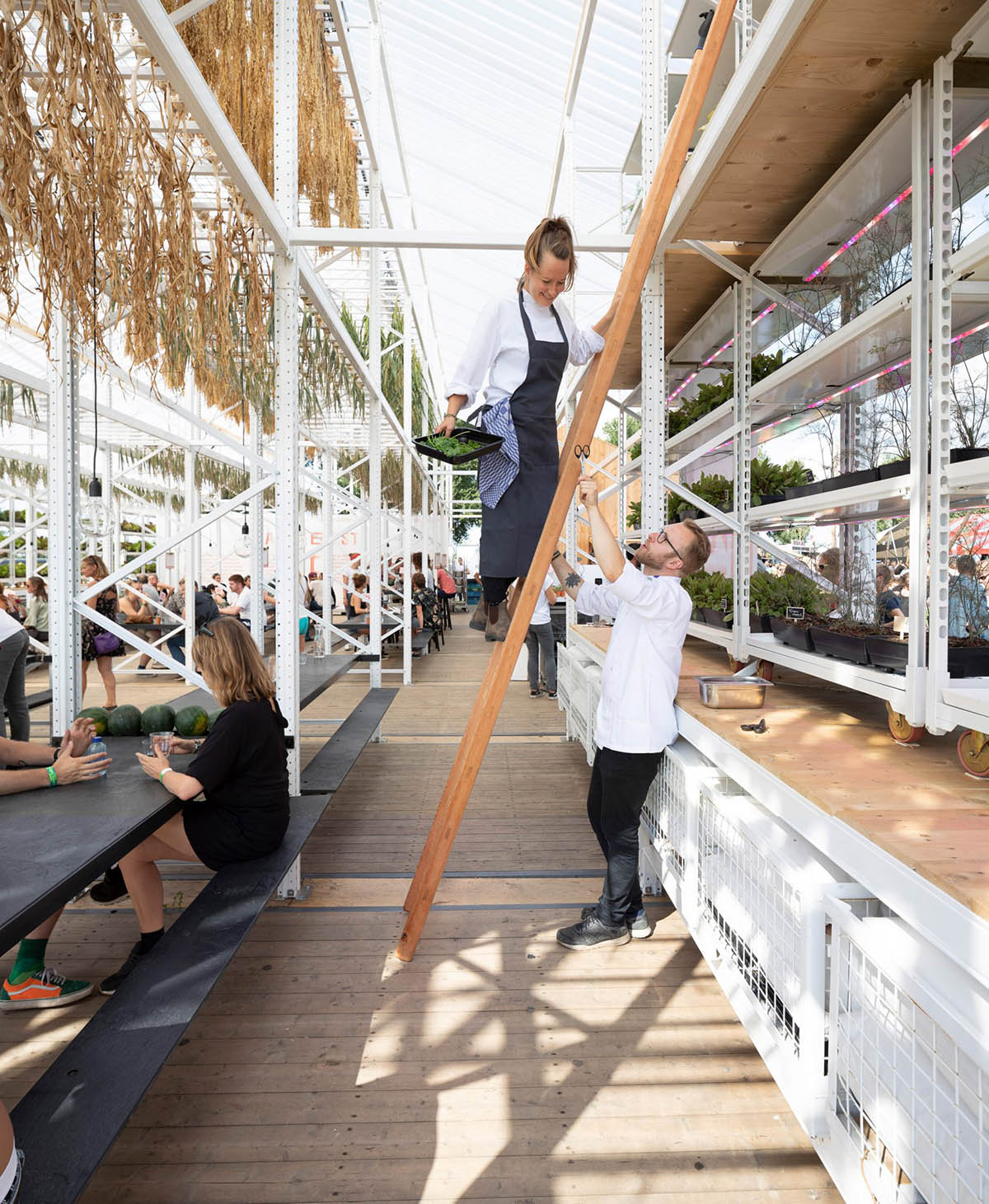
The future of building is circular: making sure no resources are wasted. The main construction components of the barn consists of standard pallet racks, the tables are made from recycled plastic.
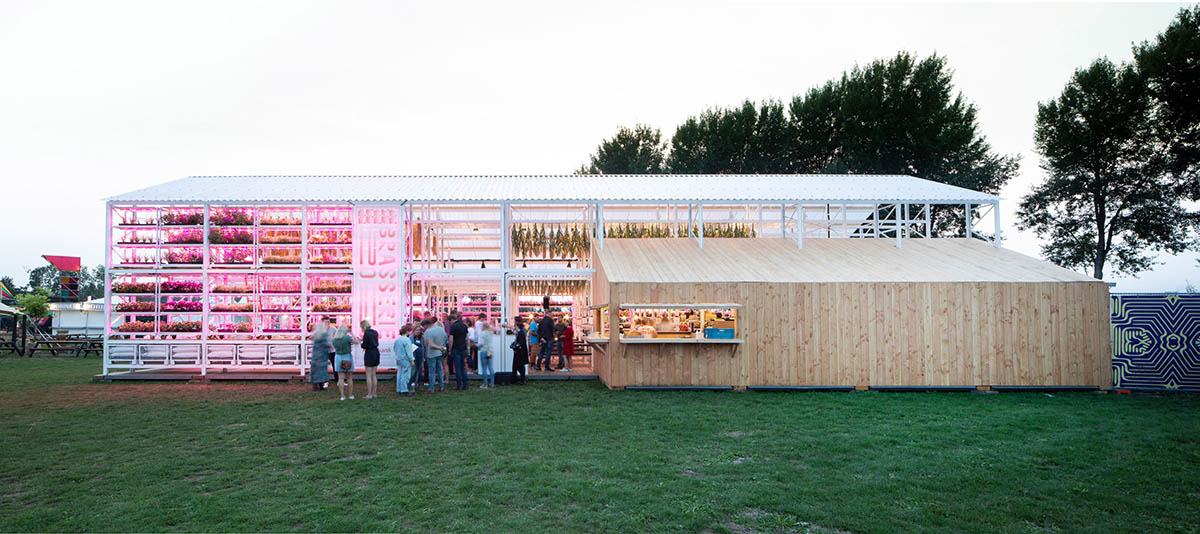
A stack of vertical farming cabinets filled with herbs forms the facade of the pavilion. Above the tables onions, garlic, corn and wheat are stored, mesh box pallets filled with bags of grain make sure the pavilion is not blown away by the wind. In this way, everything is reusable and nothing will be thrown away.

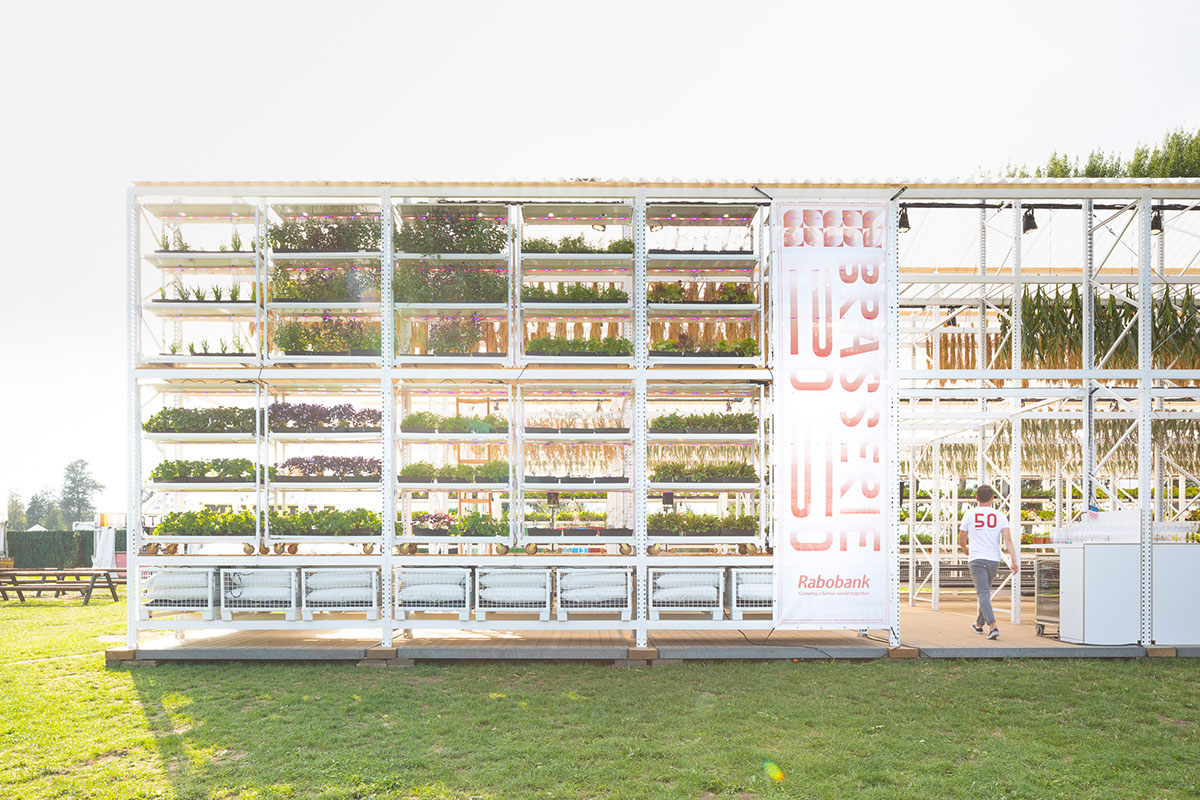
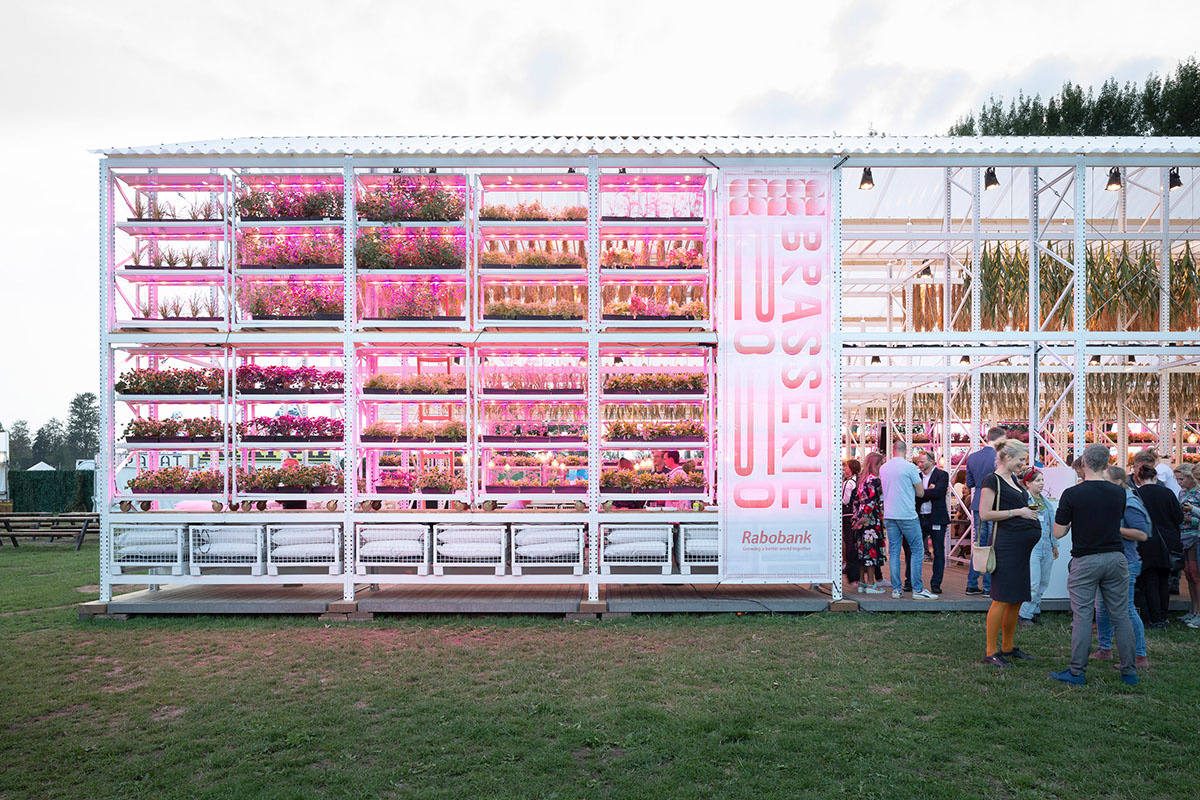
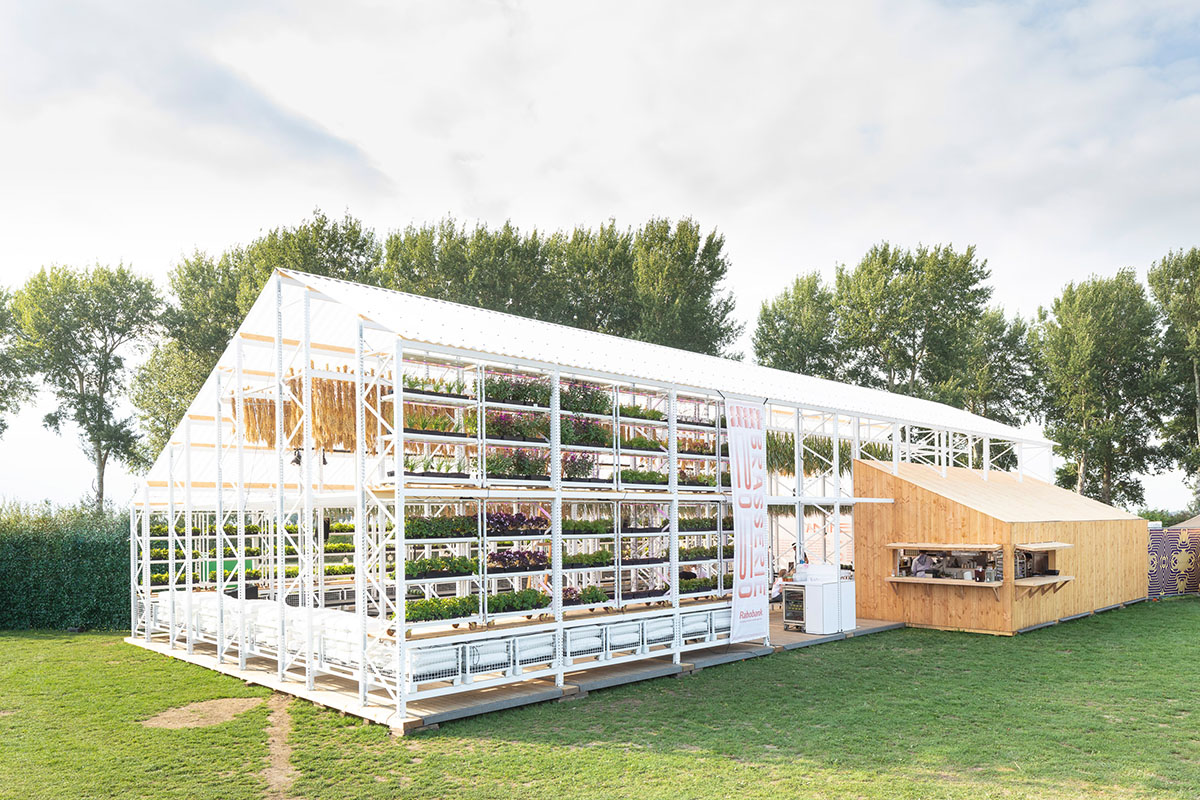
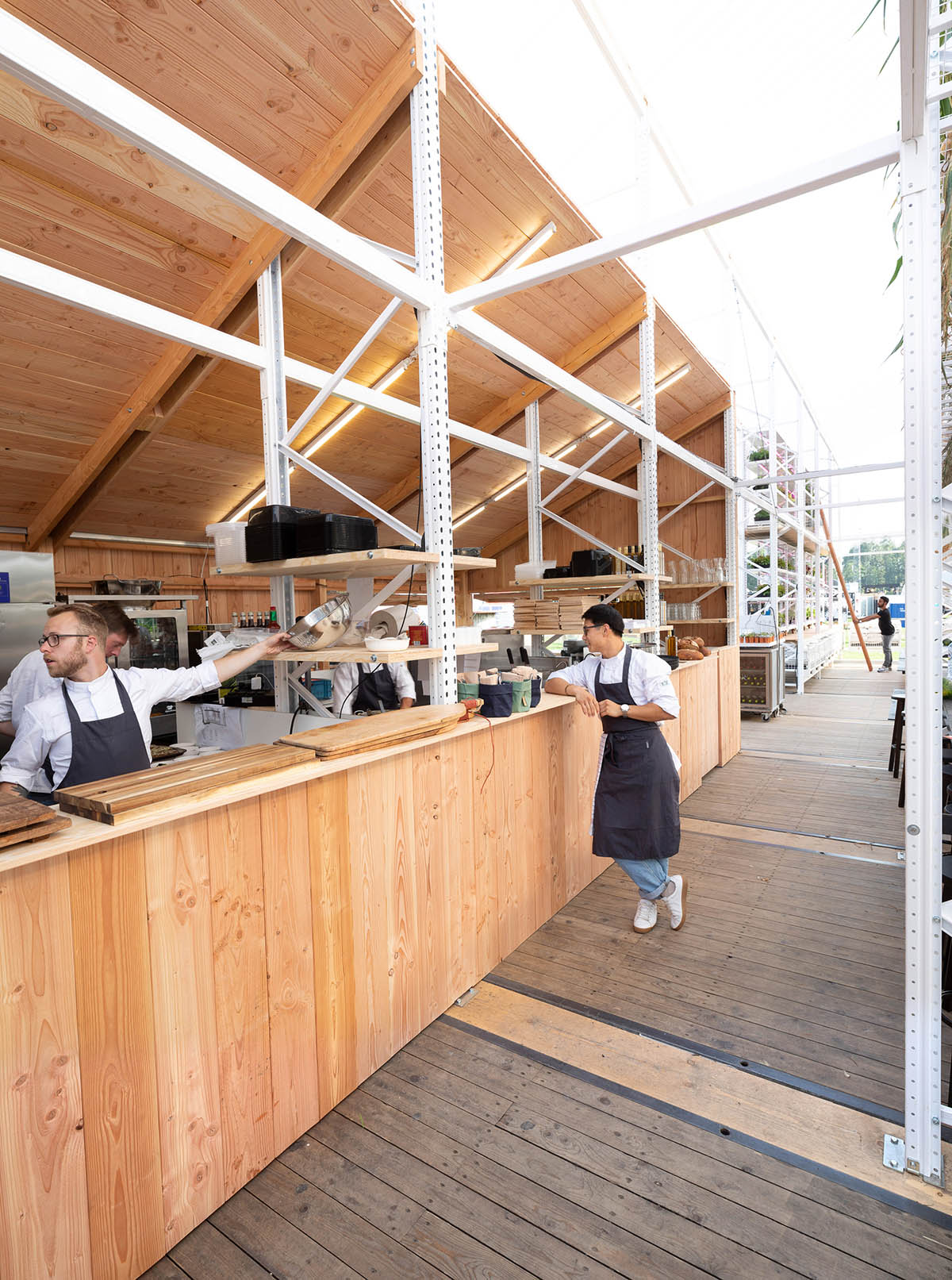
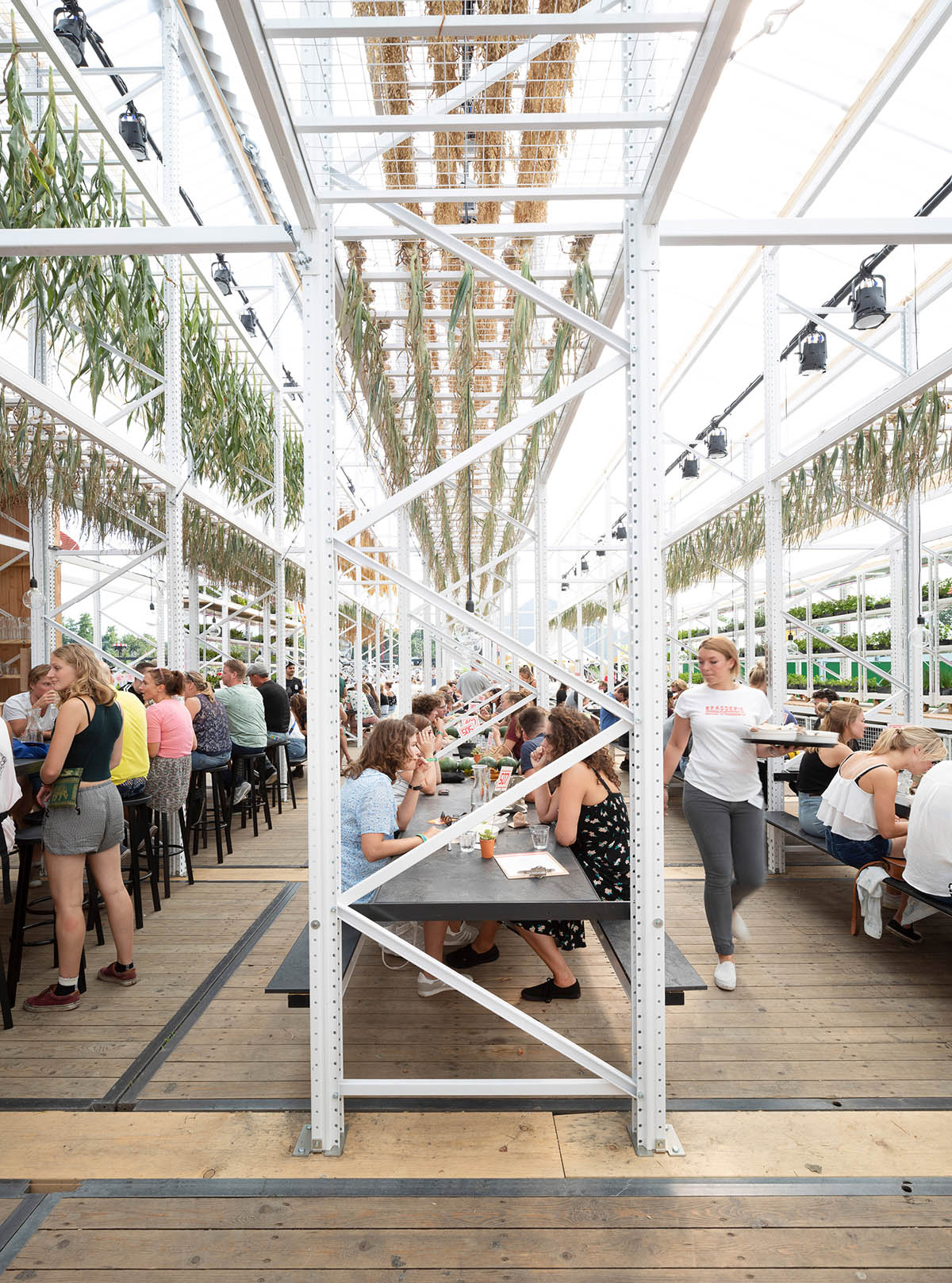

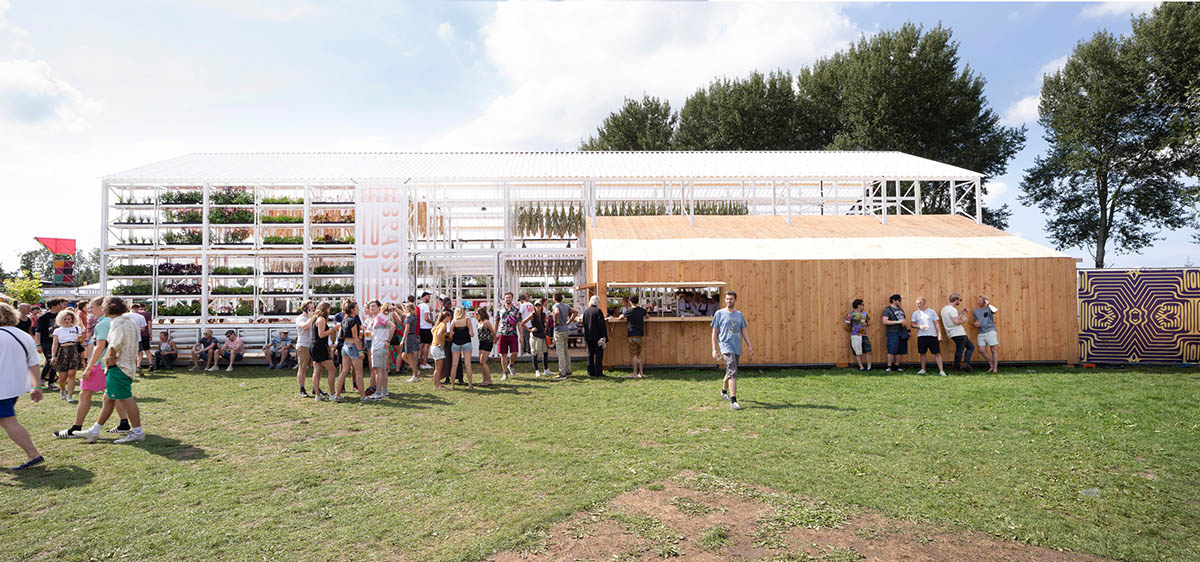
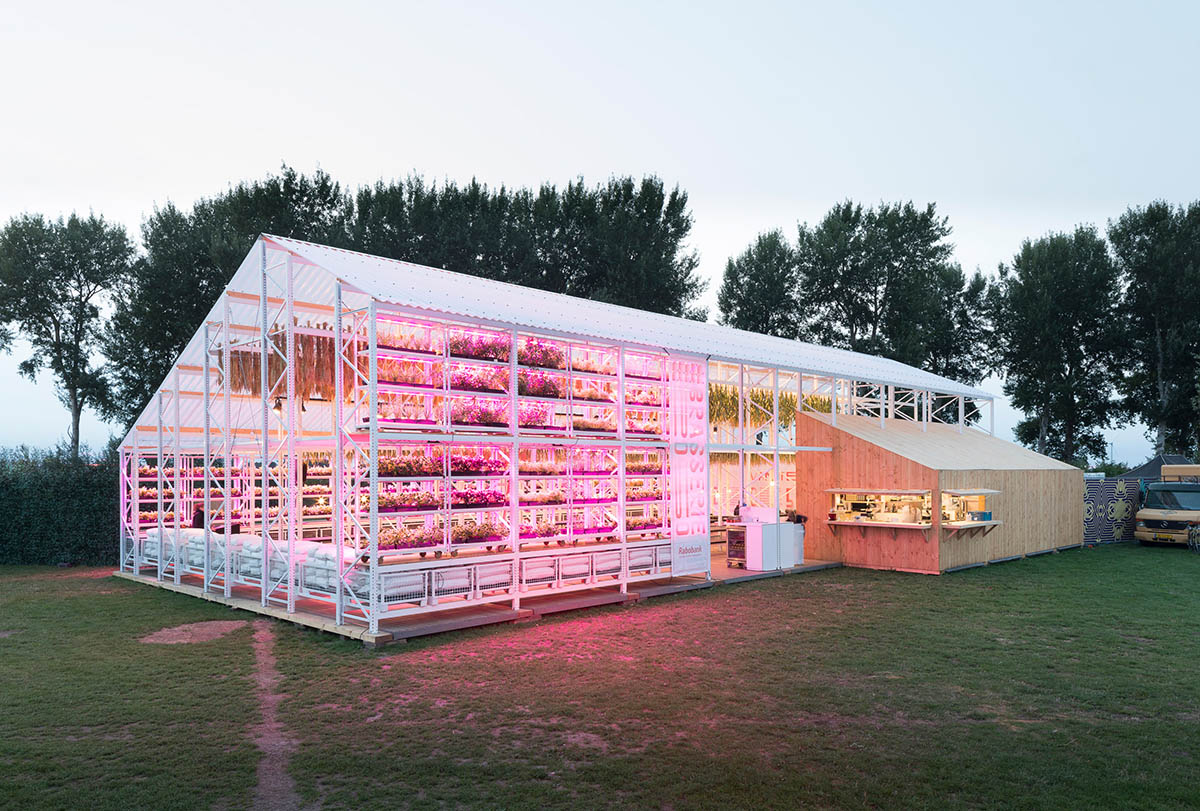
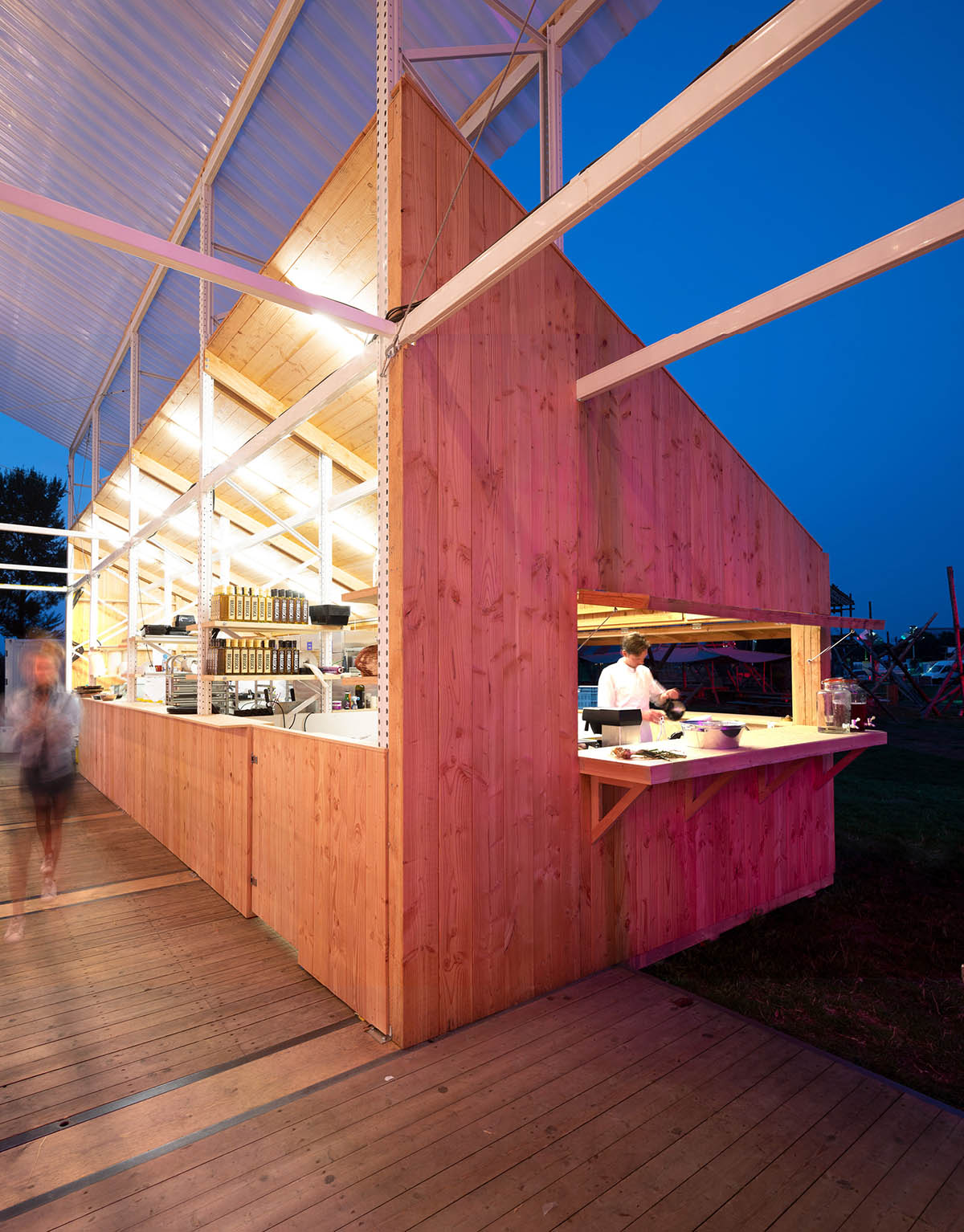
All images © Jorn van Eck
> via Overtreders W
